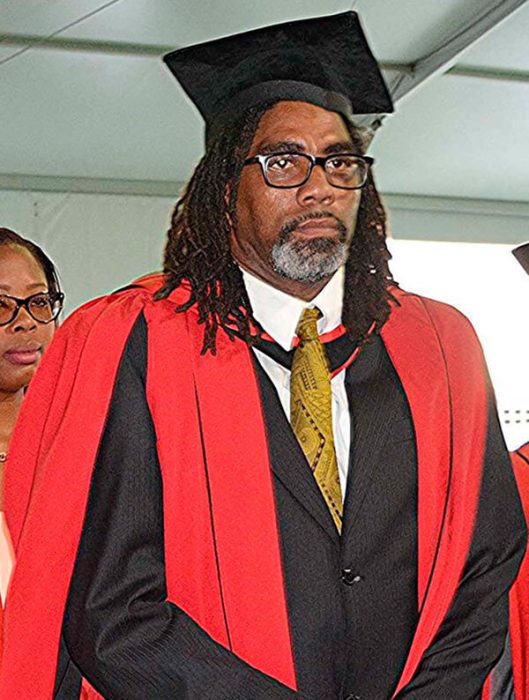Barbados has softened its programme of legal rehabilitation for convicted criminals by erasing their history in a shorter time, but while generally hailed as a good move, some say there remains stigma, and blacks are most affected.
The Criminal Records (Rehabilitation of Offenders) (Amendment) Bill, 2017, that reduces the periods of rehabilitation of convicts who served their time, after which they could apply to have their criminal records deleted, or expunged, got its final parliamentary approval when it passed through the Senate Wednesday.
It now needs two more steps to become law, the signature of assent by the governor-general, and government’s proclamation.
Among the provisions, it ensures that persons sentenced to one year or less in prison can be rehabilitated in three years instead of the seven years in the old law; those sentenced for over one year but less than three can be rehabilitated in five years instead of the customary 10 years. Those sentenced to more than three years imprisonment but less than seven years can be considered rehabilitated in 10 years.
The rehabilitation period for a non-custodial sentence is one year.
But while supporting the amendment, Independent Parliamentarian Maria Agard bemoaned what she saw as the nature of Barbados’ society where one group dominates the low rungs of the country’s economic ladder, and said the Bill that was passed, “speaks to the rehabilitation of the poorest among us and … of the poor black and primarily male. Our reality is that this particular bill speaks primarily to people on one socio-economic class.”
The Parliamentarian argued, “it is a scar and a blot on our culture that we live in a society where the very poor will find themselves as a subject of this bill … 99 percent of inmates belong to the lower socio-economic class, almost to the exclusion of all others.”
She was anyhow happy with the amendment because it gives these people a fairer chance of getting back into society.
“That person must be able to throw off the shackles of the history of the offence that they have committed… A thief should not be a thief until he dies,” Agard said.
But Senator David Durant argued that despite the amendments people of this social class will still experience difficulty re-integrating because of what he sees as a ‘lack of forgiveness’ in Barbadian society.
The Senator said that the unwillingness to forgive past law breakers who want to change their ways in Barbados might be responsible for a high level of recidivism, or prisoners re-offending.
“When they come out and go to their families, of course the families say they have no space for you.
“They go on the streets. They try to go on the block to feel accommodated on the block. Maybe during the night somewhere to sleep is yet another problem so they maybe are under pressure to fall back into drugs, fall back into some form of criminal activity.”
He contended that shunned ex-prisoners lack of employment, in some cases fall back into substance abuse, and steal which lead them back to jail
Referring to a National Taskforce on Crime Prevention study that revealed ‘startling statistics’, Durant said that of 451 inmates who were released in 1999, “306 were known to have recidivated (sic) up to September 2004”.
“In a five-year period 68 per cent of prisoners who were released were rearrested for a new offence. Some 58 percent were reconvicted and 32.5 per cent were re-imprisoned after being convicted of a new crime.”
Durant said that what he found more startling was that 57 per cent of those who re-offended were under the age of 35 with 97 per cent being men.
“Many of our young men, the strength of the nation are wasting their innate energy, skills gifts, and undiscovered potential, just wasting it away being incarcerated,” he said adding, “16 per cent of all persons released from prison were re-imprisoned six months after release.”


























